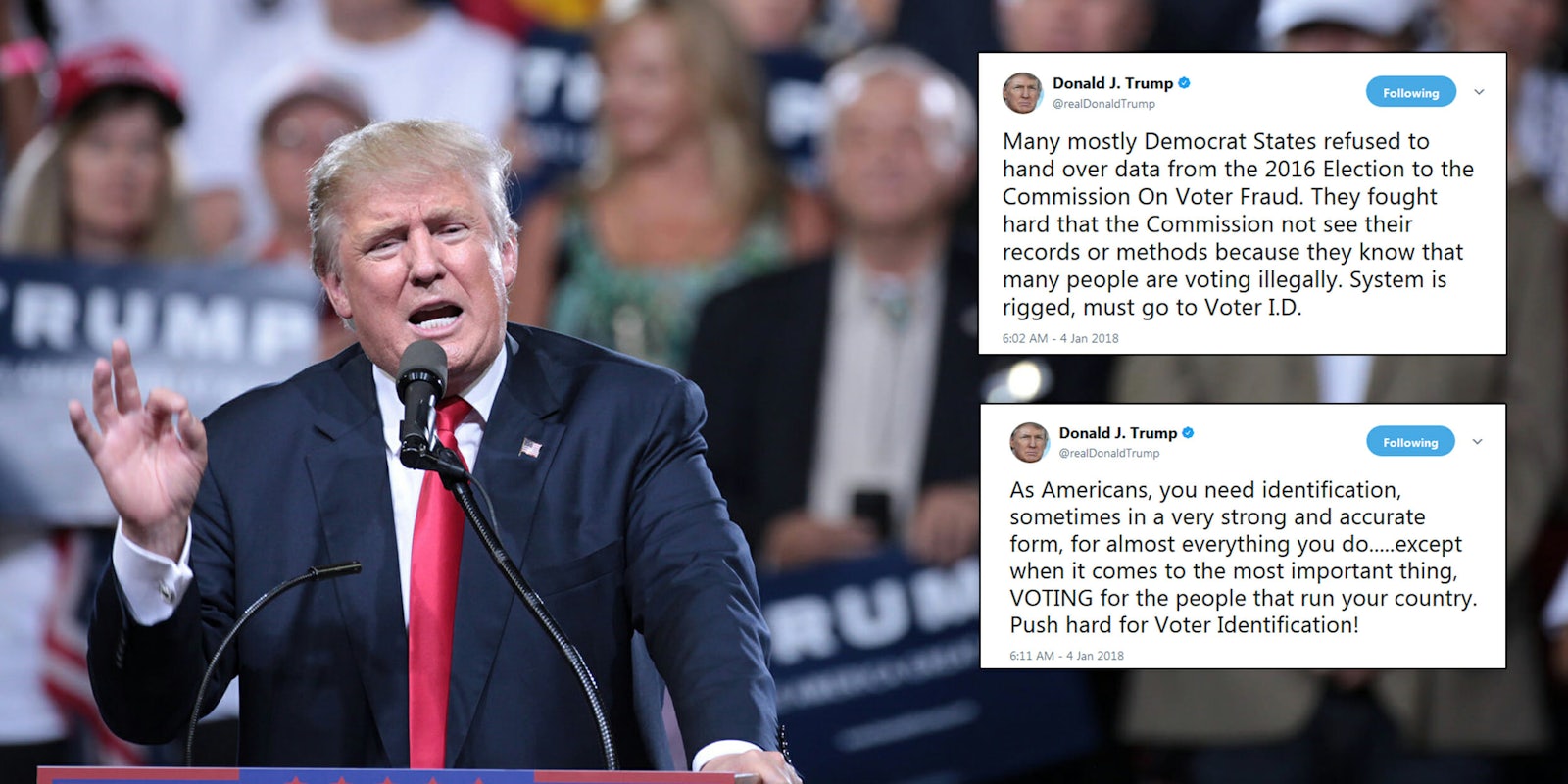President Donald Trump pushed for stronger voter identification laws on Thursday, just hours after it was announced that his controversial voter fraud commission had disbanded.
The president’s call for strong voter identification seemed to be directly related to the commission—which several states refused to participate in—being dissolved.
“Many mostly Democrat States refused to hand over data from the 2016 Election to the Commission On Voter Fraud. They fought hard that the Commission not see their records or methods because they know that many people are voting illegally. System is rigged, must go to Voter I.D.,” he wrote in a series of tweets. “As Americans, you need identification, sometimes in a very strong and accurate form, for almost everything you do…..except when it comes to the most important thing, VOTING for the people that run your country. Push hard for Voter Identification!”
Many mostly Democrat States refused to hand over data from the 2016 Election to the Commission On Voter Fraud. They fought hard that the Commission not see their records or methods because they know that many people are voting illegally. System is rigged, must go to Voter I.D.
— Donald J. Trump (@realDonaldTrump) January 4, 2018
As Americans, you need identification, sometimes in a very strong and accurate form, for almost everything you do…..except when it comes to the most important thing, VOTING for the people that run your country. Push hard for Voter Identification!
— Donald J. Trump (@realDonaldTrump) January 4, 2018
Trump created the voter fraud commission in May. The move was blasted by critics as a way for the president to try and prove his unsubstantiated claim that millions of votes were cast illegally against him during the 2016 election.
The commission, headed by Kansas Secretary of State Kris Kobach and Vice President Mike Pence, asked all 50 states to send them personal information about voters including birth dates, first and last names, voting histories, and the last four digits of their social security numbers.
More than a dozen states refused to comply with the commission’s request and even the public seemed adverse to the government requesting such a large swath of personal information.
Trump’s claim of “Many mostly Democrat States” is inaccurate. States such as Mississippi, Arkansas, Louisiana, and Kentucky, which all went for Trump, refused parts of Trump’s request for personal, private voter information.
According to the ACLU, voter identification laws “disproportionately” affect low-income, people of color, the elderly and people with disabilities because they are statistically more unlikely to afford or obtain documents that are needed to obtain government-issued photo IDs. One study referenced by the ACLU shows that voter ID laws are also enforced in a discriminatory manner as voters of color are “more frequently questioned about ID than are white voters.”
In July, the White House released a number of emails it received from the public regarding the commission. One person expressed their displeasure over the group’s mission by sharing a link of the infamous “goatse” photo.


